Fact-Checking Europa: The Last Battle | Part 4
Judeo-Bolshevism; Solzhenitsyn; Cheka Leadership
Read part 1 here.
Read part 2 here.
Read part 3 here.
Watch the documentary in full here.
“The Bolshevik leaders here, most of whom are Jews and 90 percent of whom are returned exiles, care little for Russia or any other country but are internationalists and they are trying to start a worldwide social revolution.” — David R. Francis, US Ambassador to Russia (30:37)
This is a real quote.1
“There is much in the fact of Bolshevism itself, in the fact that so many Jews are Bolsheviks, in the fact that the ideals of Bolshevism at many points are consonant with the finest ideals of Judaism.” — The Jewish Chronicle, 4 April 1919 (31:11)
This is also a real quote.2
Of the 22 ministers in the first Soviet government, 17 were Jews (31:29)
This is probably based on a claim made by Solzhenitsyn that 17 out of 20 of the ministers in the first government were Jewish. I don’t know why the number 22 was used here. The first Soviet government, established after the October Revolution in 1917, appointed 15 “people’s commissars” or ministers under Lenin.3 Trotsky was the only one of these ministers who was Jewish.
Stalin spoke Yiddish and had three Jewish wives (31:41)
There’s no indication that Stalin spoke Yiddish. Karl Radl goes into detail debunking this claim here. Stalin had two wives, not three. His first wife, Kato Svanidze, was ethnically Georgian. His second wife, Nadezhda Alliluyeva, was Russian with a small amount of Romani ancestry.
“Some historians claim that Stalin was Georgian, and some say that he was a Georgian Jew” (31:48)
No, they just say he was Georgian.
Los Angeles B’nai B’rith Messenger stated Stalin was a Jew (31:55)
The column, written in 1950, is an opinion piece titled “Here’s the Point”. The story of a former Soviet general who thought Stalin had Jewish ancestry is casually recounted as a way to make fun of antisemites:
A former Soviet General claims that Joseph Stalin is of Jewish ancestry. (Remember the fascists in this country who tried to Judaize Franklin Delino Roosevelt? Same type of mentality’). Bet a dollar that the guys who’ll throw it up to us, will forget that Jesus Christ was also a Jew.4
Needless to say, “some Soviet General said it”, reported only by a Jew using the anecdote to make a joke about antisemites, is not really evidence of anything.
“Stalin’s real name was Losif Vissarionovich Dzhugashvili” (32:00)
Yes.5 Are the filmmakers dropping that in after saying some suspect Stalin was Jewish because they think it’s a Jewish sounding name? Definitely sounds Georgian.
“The Jewish writer Moritz Steinschneider invented the term ‘antisemitic’ in 1860” (32:06)
True.6 The German Wilhelm Marr often gets credited with inventing the term (I’ve seen E. Michael Jones say this) but he only popularised it. Steinschneider used it in a piece arguing against the French philosopher Ernest Renan. Renan was a Semitic scholar who called Semites an “incomplete race”.7
The very first piece of legislation passed by the communist regime was the “antisemitism act” in 1917 (32:20)
Not true. An official Soviet response to antisemitism didn’t come until 26 July 1918, when the Soviet government issued a decree on anti-Jewish violence.8 In Antisemitism and the Russian Revolution, Historian Brendan McGeever explains this decree as the culmination of a months long lobbying effort from Jewish socialists outside the leadership of the Bolsheviks — beginning in April 1918 — in response to a series of pogroms against the Jews. McGeever explains that:
What we have come to know as the ‘Bolshevik’ response to antisemitism was the work of a group of non-Bolshevik Jewish radicals who coalesced around the regional apparatuses of the local Moscow Soviet government. Repeatedly, and often against great odds, they campaigned for and brought into being the first Soviet state response to antisemitism.9
Contra what we are told in Europa, McGreever notes that this was “the first intervention by the Bolshevik leadership on the question of antisemitism since the October Revolution of 1917”.10
Antisemitism was made a capital crime in the Soviet Union (32:29)
In the same book, McGeever explains how this decree included a provision for capital punishment in the case of partaking in anti-Jewish pogroms:
On 25 July…Lenin’s Sovnarkom met to discuss the question of antisemitism for the first time. The meeting had immediate results: the following day, a Sovnarkom decree on antisemitism was issued to all regions of Soviet Russia, and on 27 July it was published in the Soviet press. This was a significant moment: a Soviet government’s response to antisemitism had been set in motion.
It was Dimanshtein who had played the key role, not just in initiating the meeting, but in drafting the decree itself. Crucially, it was endorsed by Lenin, who personally added its concluding sentence in red pen: ‘The Sovnarkom instructs all Soviet institutions to take uncompromising measures to tear the antisemitic movement out by the roots. Pogromists and pogrom-agitators are to be placed outside the law.’ Shortly after, Dimanshtein proudly announced the significance of Lenin’s addition: ‘[This] is a very severe decree … that makes anti-Jewish pogroms punishable by death.’11
He goes on to note that by the time the decree was issued, the Bolsheviks had already lost control of the regions of the former Pale of Settlement where the Red Army themselves had engaged in progroms against Jews, and the impact of the decree was thus negligible.
A year later in the Ukrainian city of Uman, where more than half of the residents were Jewish, an uprising against Bolshevik rule took place, leading to anti-Jewish violence. This reportedly continued afer a Bolshevik regiment again occupied the city, this time with the Red Army as perpetrators themselves. In response, “local Communist Party cells tried to fight the 8th Soviet Regiment, and several orders making pogroms punishable by death were issued.”12
Finally, McGeever reports that antisemitism led to more harsh punishments, including death, for those using it to stir anti-government sentiment:
There is evidence to suggest that punishments were more severe when antisemitism was used to incite workers and peasants against Bolshevik rule. In Myrhorod, a city in the Poltava region, the former officer of a Soviet battalion Sergei Dubchak led an uprising against the Soviet regime in early April 1919 under the slogan ‘Death to the Yids and Communists, long live Soviet Power!’ When the Bolsheviks regained control of the city on 4 April, Dubchak, along with seven other leaders of the uprising, was sentenced to death by the Revolutionary Tribunal. Among the charges brought against them was their explicit use of antisemitism to agitate against the regime. This latter case is instructive, since it suggests that antisemitism was punishable by death not because the accused had participated in antisemitic political action in and of itself, but rather, because such action represented a crime against the Soviet state.13
Stalin’s 1936 constitution of the Soviet Union essentially codified hate speech laws, but these were not specific to antisemitism, instead having broad scope to target anyone advocating “national exclusiveness” or “hatred or contempt”, establishing:
Equality of rights of citizens of the U.S.S.R., irrespective of their nationality or race, in all spheres of economic, state, cultural, social and political life, is an indefeasible law. Any direct or indirect restriction of the rights of, or, conversely, any establishment of direct or indirect privileges for, citizens on account of their race or nationality, as well as any advocacy of racial or national exclusiveness or hatred and contempt, is punishable by law.14
The Jewish talmud endorses Jewish supremacy and exploitative behaviour against non-Jews (34:35)
This is accurate. A good source on this is the Israeli scholar Israel Shahak, specifically his book Jewish history, Jewish religion.15 Another good, and more accessible explainer, is Ron Unz’s article Oddities of the Jewish religion.16
That Alexandr Solzhenitsyn quote (34:52)
Europa includes this lengthy purported Solzhenitsyn quote saying the Bolsheviks were Jewish
The Europa version is longer than the one normally attributed to Solzhenitsyn, including a section saying “the blood maddened Jewish terrorists murdered sixty-six million in Russia from 1918 to 1957.” I can’t find this part of the quote anywhere else but in the documentary. The source for the rest of it comes from David Duke, who claims in his book The Secret Behind Communism that these are words Solzhenitsyn said to him in a meeting in Moscow in 2002. This is the full quote as recounted by Duke:
You must understand. The leading Bolsheviks who took over Russia were not Russians. They hated Russians. They hated Christians. Driven by ethnic hatred they tortured and slaughtered millions of Russians without a shred of human remorse. The October Revolution was not what you call in America the 'Russian Revolution.' It was an invasion and conquest over the Russian people. More of my countrymen suffered horrific crimes at their bloodstained hands than any people or nation ever suffered in the entirety of human history. It cannot be overstated. Bolshevism committed the greatest human slaughter of all time. The fact that most of the world is ignorant and uncaring about this enormous crime is proof that the global media is in the hands of the perpetrators.17
Since we have no source other than David Duke for this, whether or not the quote is real comes down to how much you trust Duke’s testimony. But Europa still changes the quote and includes parts not found in Duke’s book.
At this point, a good portion of the documentary becomes clips of documentaries about the Holodomor, which are fine. Then we get to a Lenin quote:
“Now and only now, when people are being eaten in famine-stricken areas, and hundreds, if not thousands, of corpses lie on the roads, we can (and therefore must) pursue the removal of church property with the most frenzied and ruthless energy and not hesitate to put down the least opposition.” — Lenin (47:26)
This is a real quote.18
“We must turn Russia into a desert inhabited by white negros, whom we will give such a tyranny that the most terrible despots of the East never dreamed of. The only difference is that this tyranny will not be on the right, but on the left, and not white, but red. In the literal sense of the word, red, for we will shed such streams of blood, before which all the human losses of capitalist wars will shudder and pale. The largest bankers overseas will work closely with us. If we win the revolution, crush Russia, then on its burial debris we will strengthen the power of Zionism and become such a force before which the whole world will kneel. We will show you what real power is. By terror blood baths, we will bring the Russian intelligentsia to complete dullness, to idiocy, to an animal state.” — Trotsky (48:18)
The source of this quote is a small Russian fascist newspaper from the 1930s named Nash Put, which was purporting to paraphrase Rasputin’s secretary Aron Simanovitch from his book Rasputin: The Memoirs of His Secretary. I can’t find anything like this quote in the English translation of his memoir,19 or anything else to corroborate it.
“The Jew Vladimir Lenin” (50:13)
Lenin was only a quarter Jewish. His maternal grandfather was a Ukrainian Jew who reportedly converted to Christianity to escape the Pale of Settlement.20
The Cheka was led by a Jew, Felix Dzerzhinsky (50:17)
Dzerzhinsky was not Jewish. His ancestry is fairly easy to track, since he was actually of Polish noble origins.21
Jews made up nearly 80% of the rank and file Cheka agents (50:18)
It is claimed that this fact comes from the historian Bruce Lincoln. This is actually true, but more specifically it was Cheka agents in Ukraine, which Europa does not specify. Of course, that’s still an astonishing figure.
A 1990 archived edition of the New York times confirms this is Lincoln’s finding in a review of his book Red Victory: A History of the Russian Civil War:
Mr. Lincoln argues that more Russian priests were killed at the hand of Red mobs than by state-sanctioned execution. He also says that the Reds, always anxious to use racial hatred to their advantage, exploited the grief of the persecuted Jews and made them a substantial component of the Cheka, the new secret police, in the Ukraine (he figures Jews made up 80 percent of the Cheka cadre in the region).22
Stalin’s second wife was Lazar Kaganovich’s sister, Kaganovich likely controlled Stalin through her (51:50)
Wrong. Lazar’s sister Rosa was “believed to be intimately involved with Stalin”23 In the West during his lifetime, it was rumoured Stalin may have married Rosa, but this never happened. In fact, Rosa probably never existed at all.
Karl Radl has a detailed article on this which concludes Rosa never existed as:
The people who should know of her existence don’t and those who claim she existed were in no position to actually know and seem to have been relying on rumours that simply evolved, clarified and magnified over time.24
He concludes that the rumour probably originated among victims of Stalin’s repression as a way to express the Jewish character of the tyranny:
‘Rosa Kaganovich’ was…a phantasm created by the (often non-jewish) victims of Stalin’s Soviet Union to express and explain – basically ‘Rosa Kaganovich’ controls Stalin (with sex) and Lazar Kaganovich controls ‘Rosa Kaganovich’ and thus Stalin - the overwhelming jewishness of that genocidal regime without overtly observing that jewishness because that would go against their Marxist or broadly leftist beliefs.25
Many churches were burned, but synagogues were left standing. Soviet leaders held Rabbis in high esteem (52:08)
The Soviets passed a law on 2 February 1918 enshrining the separation of church and state which declared all property of religious associations to now belong to the public. This allowed the seizure of those buildings to be reconstituted as housing or for other needs of the state.
In 1921, the Soviets closed a number of synagogues in the city of Vitebsk to convert to schools, to heavy protests from the Orthodox Jews administering them. The policy didn’t become common until the late 1920s, though. A paper on this gives numbers to how this affected synagogues:
Confiscation of synagogues was carried out on a much greater scale after 1927. According to the Bezbozhnik (The Atheist) in 1914 there had been 1,400 synagogues in the Ukraine, in 1927 only 1,034, and from then until early 1929 one hundred more were closed. By 1927 about 100 synagogues in Byelorussia had been closed down. In the entire USSR, according to Izvestia, 354 churches, 38 monasteries, 59 synagogues, 38 mosques and 43 other prayer houses were closed in 1928.26
In 1929, more than 100 synagogues were closed. A research paper on this concludes synangogues were actually being closed at a greater rate than other religious buildings because of a greater cost of maintenance.27 By late 1930, no synagogues remained in Kiev, where there had been 44 before the Bolshevik government. The "great purges" of 1937-1939 brought about the closure of most of the remaining synagogues.
As far as the claims of burning specifically, in the city Bobruysk its three major “great synagogues” were confiscated by the government and had their Holy Arks smashed and burned. So synagogues don’t seem to have been spared from any of the Communist targeting of religious buildings.
"We must hate. Hatred is the basis of communism. Children must be taught to hate their parents if they are not communists." (53:07)
This is not a real quote. It appears to be based on something Lenin wrote in his tract Left-Wing Communism: an Infantile Disorder:
The writer of the letter is full of a noble and working-class hatred for the bourgeois “class politicians” … In a representative of the oppressed and exploited masses, this hatred is truly the “beginning of all wisdom”, the basis of any socialist and communist movement and of its success.28
“The Bolshevist revolution in Russia was the work of Jewish brains, of Jewish dissatisfaction, of Jewish planning, whose goal is to create a new order in the world. What was performed in so excellent a way in Russia, thanks to Jewish brains, and because of Jewish dissatisfaction and by Jewish planning, shall also, through the same Jewish mental an physical forces, become a reality all over the world."-New York American Hebrew, 20 September 1920. (53:20)
The article from The American Hebrew is called "Jews in World Reconstruction", written by Svetozar Tonjoroff, who was not a Jew. The phrase “Bolshevist/Bolshevik revolution was the work of Jewish brains” does not appear in the article, which was discussing the fall of Tsarism in Russia:
The workings of this unrest are to be seen in the events that have accomplished, since the fateful year 1914, a task that looms far larger than the French Revolution—the annihilation of the must firmly entrenched, the most selfish and most reckless autocratic system in the world, the Russian Czarism. That achievement, destined to figure in history as the overshadowing result of the world war, was largely the outcome of Jewish thinking, of Jewish discontent, of Jewish effort to reconstruct.29
So the article is commending the earlier, Republican revolution by the Kerensky faction in Russia that was overthrown by the Bolsheviks.
This version of the quote which includes "The Bolshevist revolution in Russia was the work of Jewish brains” appears to have first been published in 1959 in a Christian fascist publication called The Cross and the Flag.30
“Zionism is a political program for the conquest of the world” (53:52)
A real quote from Henry H. Klein, who wrote “Zionism Rules the World.”
“Some call it communism, I call it Judaism” — Rabbi Stephen Wise (54:16)
This is often posted online with the source always given, as it is here, as “The American Bulletin, May 15, 1935.”
The American Bulletin was a pro-Nazi American newsletter, so it seems pretty unlikely a liberal Rabbi like Stephen Wise would have been a contributing columnist. If the Bulletin was quoting some other speech of Wise, there doesn’t seem to be any other record of it.
“We will make our hearts cruel, hard, and immovable, so that no mercy will enter them, and so that they will not quiver at the sight of a sea of enemy blood.” — Gregory Zinoviev (57:35)
This Zinoviev quote is real.31
“You are Starving? This is not famine yet, when your woman start eating their children then you may come and say we are starving.” — Trotsky (1:07:32)
Not a real quote.
Jews were commandants of 11 out of 12 main gulags (1:12:27)
This apparently originates in an anti-communist work written in 1937, but it doesn’t seem to have any basis in fact.
Jews certainly had a disproportionate representation among the administrators of the gulag system, though. The Jew Lazar Kogan was head of the gulag system from 1930 to 1932, then became deputy to the new head of the system: the Jew Matvei Berman who held the post from 1932 to 1937. Berman was succeeded by another Jew, Israel Pliner, meaning three Jews consecutively ran the gulag system from 1930 to 1937.32 After that, the position was held by Russians or Ukrainians.
“Without big banks socialism would be impossible” — Lenin (1:13:15)
This is a real quote from a Lenin essay called “Can the Bolsheviks retain state power?”33
And that concludes Part One of Europa: The Last Battle!
Next up, read Part Two: Fact-checking Europa on World War 1
Francis, David R. Russia from the American Embassy (New York: 1921), p. 214.
https://archive.org/details/B-001-018-446
https://soviethistory.msu.edu/1917-2/first-bolshevik-decrees/first-bolshevik-decrees-texts/soviet-of-peoples-commissars-sovnarkom/
Weissman, David. ‘Here’s the Point’, B’nai B’rith Messenger, 3rd March 1950, p. 5
http://www.jstor.org/stable/24537109.
https://njop.org/the-origin-of-word-anti-semitism/
https://jewishencyclopedia.com/articles/1603-anti-semitism#4621
McGeever, Brendan. The Bolshevik Response to Antisemitism in the Russian Revolution. Cambridge University Press, 2019.
IBID. Pg 84.
IBID. Pg, 79
IBID. Pg 78-79
IBID. Pg. 103
IBID. Pg. 119
Article 123 of the 1936 Soviet Constitution.
Shahak, Israel. Jewish history, Jewish religion: the weight of three thousand years. Pluto Press, 1994.
https://www.unz.com/runz/american-pravda-oddities-of-the-jewish-religion/
Duke, David. The Secret Behind Communism: The Ethnic Origins of the Russian Revolution & the Greatest Holocaust in the History of Mankind. 2013. Pg. 13
https://www.loc.gov/exhibits/archives/trans-ae2bkhun.html
Simanovitch, Aron. Rasputin: The Memoirs of His Secretary. Edited by Delin Colon and Bryna Kranzler. Annotated edition. CreateSpace Independent Publishing Platform, 2013.
https://www.themoscowtimes.com/2011/05/31/lenins-jewish-roots-on-display-a7314
Riga, Liliana. "Reconciling Nation and Class in Imperial Borderlands: the Making of Bolshevik Internationalists Karl Radek and Feliks Dzierżyński in East Central Europe 1." Journal of Historical Sociology 19, no. 4 (2006): 447-472.
https://archive.is/TRVV4
https://archive.is/SufbM#selection-623.59-623.105
IBID
Yodfat, Aryeh Y. "The closure of synagogues in the soviet union." East European Jewish Affairs 3, no. 1 (1973): 48-56.
IBID
Lenin, Vladimir Ilʹich. " Left-wing" communism: an infantile disorder. 1920.
Quoted in General Jewish Council (US). Father Coughlin, His" facts" and Arguments. General Jewish Council, 1939.
https://books.google.com/books?id=UVQfAQAAMAAJ&dq=%22The+Bolshevist+Revolution+in+Russia+was+the+work+of+Jewish+brains
https://spartacus-educational.com/RUSterror.htm
Jakobson, Michael. Origins of the gulag: The Soviet prison camp system, 1917-1934. University Press of Kentucky, 2014.
Lenin, Vladimir Ilʹich. Can the Bolsheviks retain state power?. Progress Publishers, 1967.


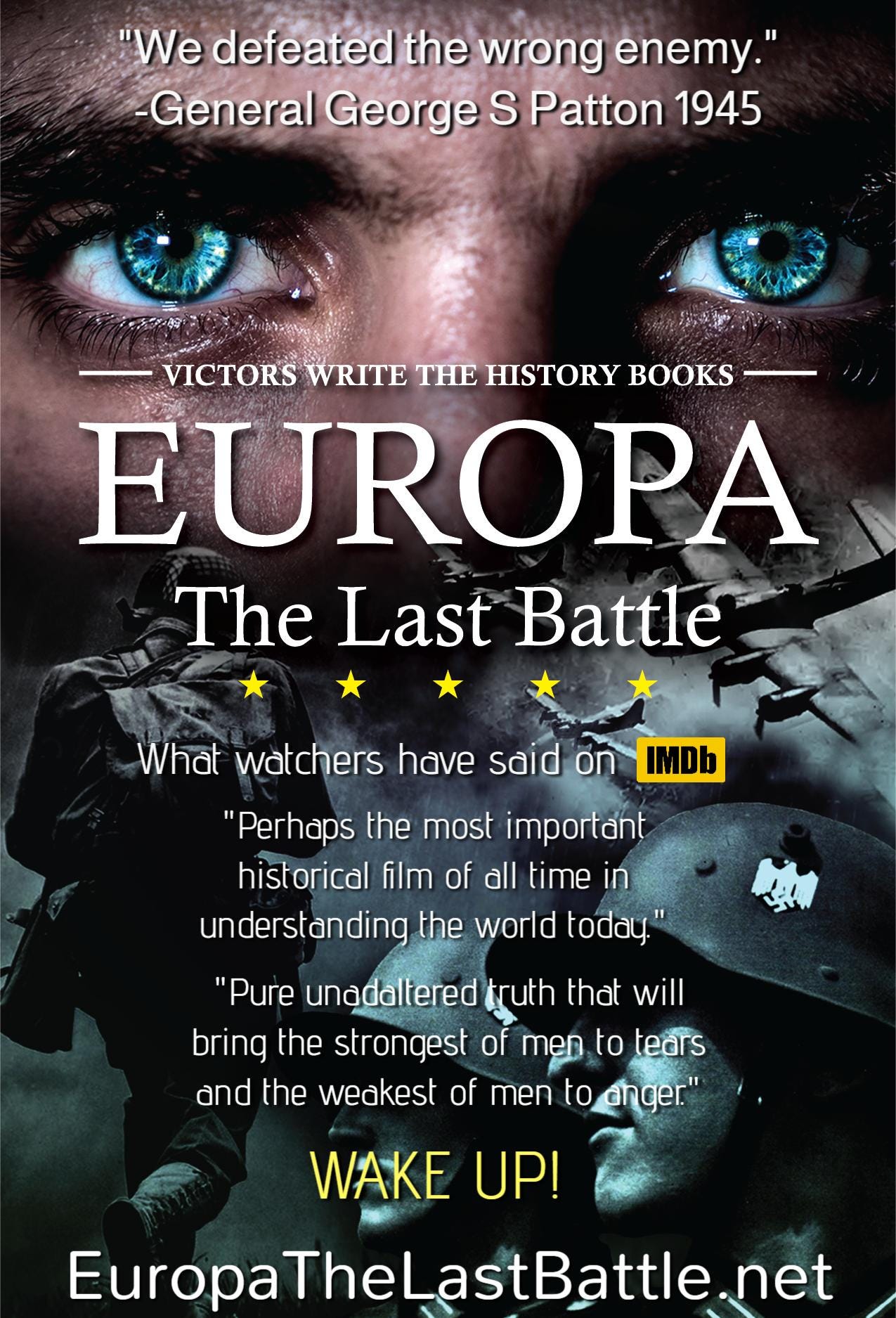

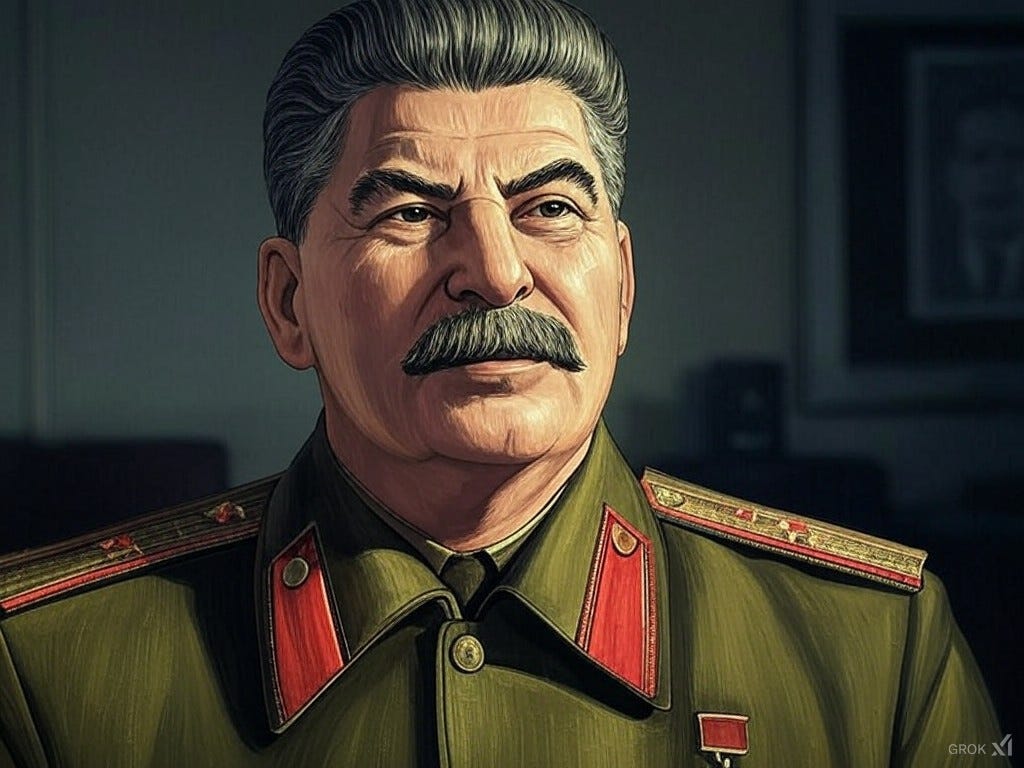

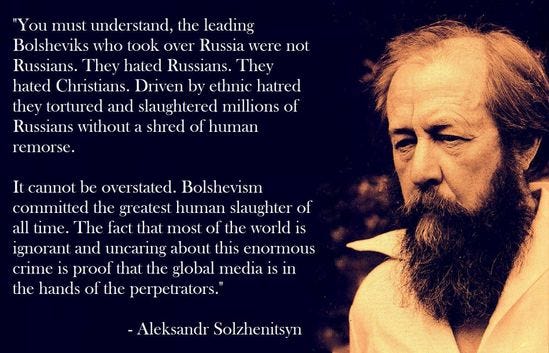
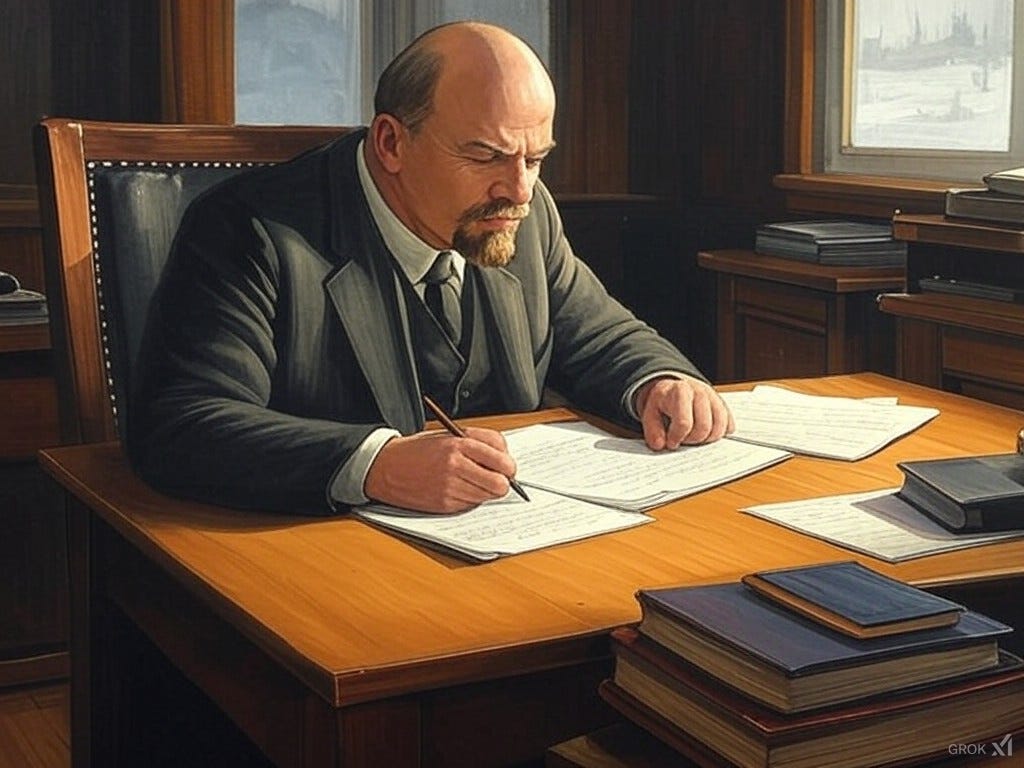


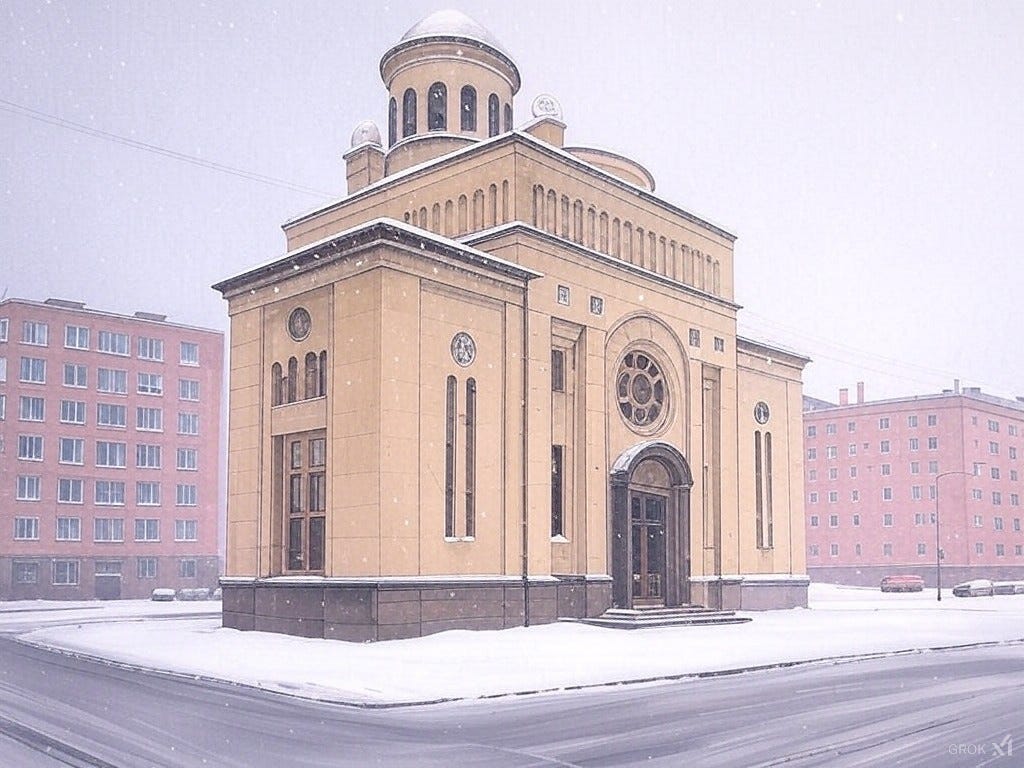
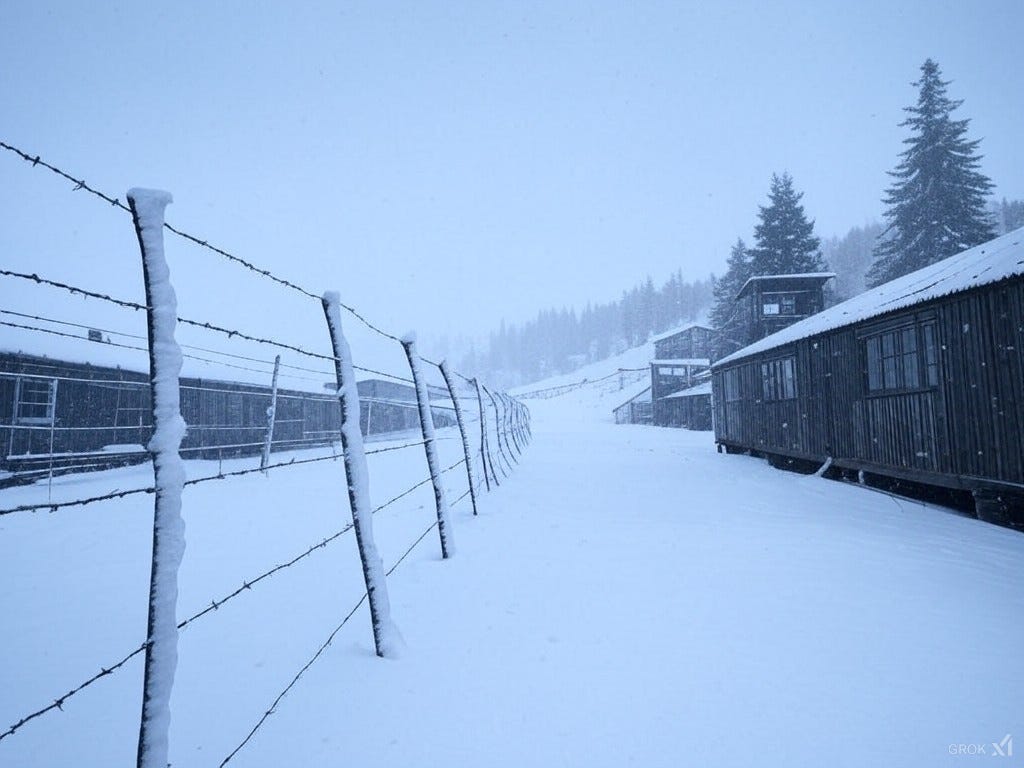
This series is a real service.
The whole doc is a compilation of 4chan tier internet memes. This is where morons like Stew Peters and Myron Gains get their worldview from.